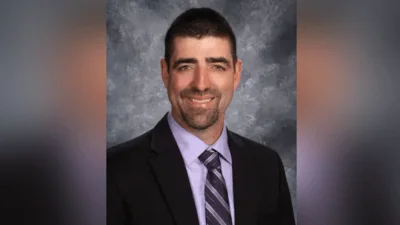Dianne Hesselbein, Wisconsin State Senator for 27th District | Official Website
Dianne Hesselbein, Wisconsin State Senator for 27th District | Official Website
According to the Wisconsin State Legislature's official website, the bill was described as follows: "waiver of fees for admission to state parks on Earth Day. (FE)".
The following is our breakdown, based on the actual bill text, and may include interpretation to clarify its provisions.
In essence, this bill mandates that the Wisconsin Department of Natural Resources waive any daily admission fees for vehicles entering state parks on April 22 each year, in honor of Earth Day and its founder, Gaylord Nelson. Currently, vehicles must display an annual or daily admission receipt to access state parks, and the department charges a fee for these receipts. However, under this new legislation, all fees, including issuing fees, would be waived specifically on Earth Day, reflecting the bill’s purpose to commemorate the environmental significance of the day.
The bill was co-authored by Representative Alex R. Joers (Democrat-81st District), Senator Dora E. Drake (Democrat-4th District), Senator Jodi Habush Sinykin (Democrat-8th District), Senator Chris Larson (Democrat-7th District), and Senator Melissa Ratcliff (Democrat-16th District). It was co-sponsored by Representative Clinton M. Anderson (Democrat-45th District), Representative Deb Andraca (Democrat-23rd District), and Representative Margaret Arney (Democrat-18th District), along with 36 other co-sponsors.
Dianne H. Hesselbein has authored or co-authored another 25 bills since the beginning of the 2025 session, with one of them being enacted.
Hesselbein graduated from the University of Wisconsin at Oshkosh in 1993 with a BS.
Hesselbein, a Democrat, was elected to the Wisconsin State Senate in 2023 to represent the state's 27th Senate district, replacing previous state senator Jon Erpenbach.
In Wisconsin, the legislative process starts when a senator, constituent, group, or agency proposes an idea for a bill. After drafting, the bill is introduced, numbered, and referred to a committee for review and public input. If approved, it moves through three readings and votes in both the Senate and Assembly. Once both chambers pass the same version, the bill goes to the governor, who can sign it, veto it, or let it become law without a signature. Only a small share of bills introduced each session ultimately become law. You can learn more about the Wisconsin legislative process here.
| Bill Number | Date Introduced | Short Description |
|---|---|---|
| SB265 | 05/20/2025 | Waiver of fees for admission to state parks on Earth Day. (FE) |
| SB50 | 02/21/2025 | Health care costs omnibus, granting rule-making authority, making an appropriation, and providing a penalty. (FE) |





 Alerts Sign-up
Alerts Sign-up